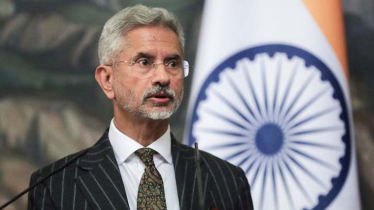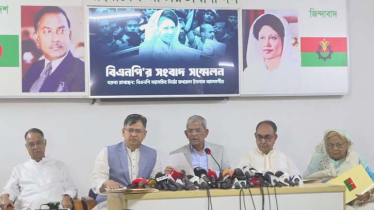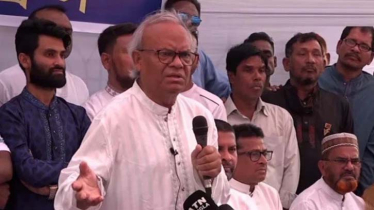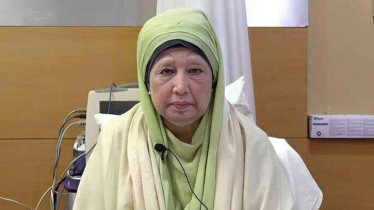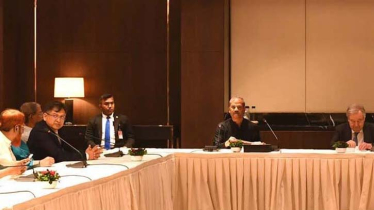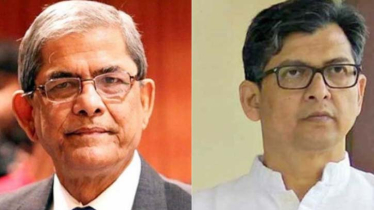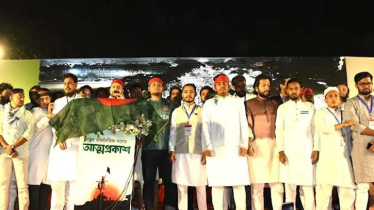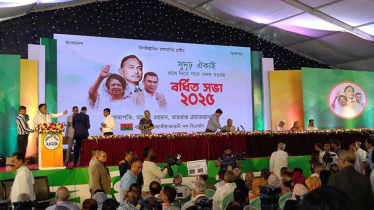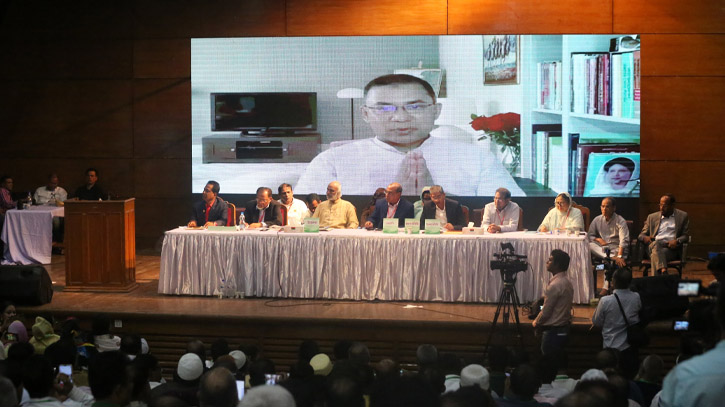
Photo : Collected
BNP Acting Chairman Tarique Rahman on Tuesday said that people's voting rights need to be safeguarded at any cost, stressing that it is essential for their political and economic emancipation.
“We’re fighting for the restoration of people's freedom of speech and the rights to vote. So, we must secure this right at any cost by raising public awareness,” Tarique said in his virtual concluding speech at a workshop in the capital.
He urged the people of Bangladesh to remain vigilant, warning that various conspiracies are being devised against the nation. Tarique said no reforms would be effective or it could ensure the welfare of the nation without the political and economic emancipation of people.
The BNP leader said political emancipation means all public representatives must be accountable to people. He said no one--whether from the government, opposition, political parties, or local leaders such as upazila or municipality chairmen, members, or councillors--should be allowed to act according to their personal whims.
“Everyone must be accountable to people. To ensure this, we must restore people's rights to vote. Accountability is guaranteed in any democratic and civilised country through voting,” the BNP leader observed.
Tarique stated that the BNP has long been engaged in a movement for the restoration of people’s political, voting and other fundamental rights. “It’s a struggle that has cost many lives and involved enduring serious oppression and suppression.”
“We often say that the plots never cease. You (BNP leaders and workers) can also understand, as you see from recent news in the newspapers, that somewhere a plot is unfolding. So, we must raise awareness among the people and stay united with them,” he said.
The BNP leader recalled the slogan "Take back Bangladesh" chanted during Sheikh Hasina's autocratic rule. “This slogan symbolised the restoration of people's rights and the establishment of a strong foundation for their economic empowerment. I will request you as a colleague and order you as a leader: from today onwards, no one should use ‘Deshnayak’ or ‘Rashtanayak’ alongside my name,” he added firmly.
The BNP organised the workshop to discuss the party’s 31-point state structure reform outline at the Institution of Diploma Engineers, Bangladesh. BNP Standing Committee member Dr Abdul Moyeen Khan inaugurated the workshop in the morning.
Tarique Rahman said the BNP will return to power in the future if only its leaders and workers work and behave in accordance with the will of the country’s people.
He said the BNP presented its 31-point proposal, which is based on the opinions of all democratic parties in the country, to reform state institutions. “Many are now talking about various reforms. But when no one else even thinks about it, the BNP presented reform proposals many years ago.”
The BNP leader, however, said the 31-point proposal is not unchangeable. “We are open to incorporating any good proposals or suggestions we receive.”
The BNP leader urged party members to spread the 31-point proposal across the country, including rural areas, to inform the public about it and gather their feedback.
He encouraged BNP leaders and activists to hold small meetings in rural areas, in the countryside, to give people a clear understanding of the reform proposals.
Tarique also highlighted the importance of investing in primary education, ensuring teachers receive good salaries to curb corruption. “We must focus on the quality of education for both students and teachers.”
He also stressed the importance of focusing on the health sector to build a healthy nation with access to quality services. “If we can reduce corruption, we will be able to ensure better healthcare services.”
The BNP leader outlined the party’s plans to assess the global labour market and create skilled and semi-skilled manpower in line with the market demands.
Messenger/JRTarek

